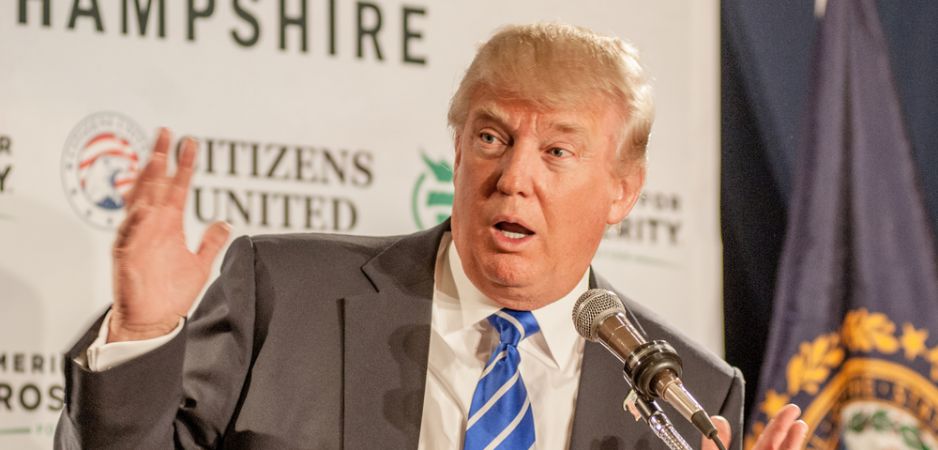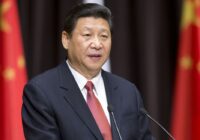A slowdown in China is making the world economy wobble and will lead to declining trade, growth and returns to capital.
Soon after the fall of the Berlin Wall and the collapse of the Soviet Union, Francis Fukuyama published The End of History and the Last Man. He proclaimed: “The end point of mankind’s ideological evolution and the universalization of Western liberal democracy as the final form of human government.” Fukuyama was being a bit too Americano and just a touch premature in his prediction. The one thing we know from history is that trends toward universalization tend to trip up. Both fervent Catholicism and godless communism failed to convert everyone, despite their best efforts
After the end of the Cold War, new high priests emerged and their creed swept through the great universities of the planet. These priests were economists who assumed that human beings were rational, that they were highly informed and they made highly conscious and wise choices. Just as Catholics worship Jesus, economists swore by Jeremy Bentham, an Englishman who wanted the greatest good of the greatest number in his utilitarian philosophy. He proposed the Panopticon prison, which would “cost nothing to the nation.” One gaoler would be able to watch all inmates who would do menial labor and pay for their upkeep. The Panopticon was meant to be “a mill for grinding rogues honest,” and the government of William Pitt the Younger duly paid Bentham £2,000 for his splendid ideas.
When communism fell, people turned to markets for salvation. Milton Friedman, the favored priest of Ronald Reagan and Augusto Pinochet, became particularly influential. His prescription of privatization of collectively-owned assets such as the post office and national parks suddenly became respectable. In former communist countries, privatization was duly carried out. The relatives, friends and cronies of former party bosses bought state-owned assets for a fraction of their value and appropriated most of the wealth of the public. Friedman, a midget cheerleader in short skirts, approved. He crudely conflated capitalism with freedom, forgetting Adam Smith’s fine point that “moral sentiments” underpin markets.
Like Humpty Dumpty, the new world economy that was born in 1991 has taken a great fall. In the first six months of 2015, world trade has contracted at the fastest pace since 2009. In simple terms, it means the Americans are cutting down purchases of Chinese-made goods, the Brazilians are buying fewer Ferraris and the Chinese are quaffing smaller quantities of Burgundies. As The Economist points out, this is “the reversal of a trend where for decades the growth in global trade outstripped that of the world economy.”
 This growth occurred because of three reasons. First, people wanted to consume more. People in formerly communist countries were besotted with better products from advanced economies such as cars, washing machines and cosmetics. Similarly, people in richer countries wanted more for less, be it chocolate or lingerie. Second, the new free market zeitgeist led to the birth of a global framework for trade in the form of the World Trade Organization that had been stalled for over four decades. Finally, capital chasing ever greater returns flocked to poorer countries where labor cost less. So, companies such as Nike and Apple shifted manufacturing to places like Vietnam and China. These reasons have now been exploited to the hilt, and world trade can no longer grow as in the recent past.
This growth occurred because of three reasons. First, people wanted to consume more. People in formerly communist countries were besotted with better products from advanced economies such as cars, washing machines and cosmetics. Similarly, people in richer countries wanted more for less, be it chocolate or lingerie. Second, the new free market zeitgeist led to the birth of a global framework for trade in the form of the World Trade Organization that had been stalled for over four decades. Finally, capital chasing ever greater returns flocked to poorer countries where labor cost less. So, companies such as Nike and Apple shifted manufacturing to places like Vietnam and China. These reasons have now been exploited to the hilt, and world trade can no longer grow as in the recent past.
The biggest immediate shock to the world economy is now emanating from China. In August, manufacturing “fell to a six-and-a-half year low” and the stock market plumbed new depths this week. Since July, Chinese authorities have unwisely thrown the kitchen sink to prop up share prices. This has transferred wealth from the poor to the rich in exactly the same way as Hank Paulson’s bailout of US banks in 2008. Like Paulson, the Chinese authorities have panicked and most of their knee-jerk reactions are not working. Over investment, bad debts, corruption, pollution and extreme reliance on exports have been longstanding problems. Rulers of the Middle Kingdom cannot keep flogging an ailing horse that might die soon.
August 24 is being referred to as “Black Monday” because the Shanghai Composite Index fell by nearly 9%, its biggest one-day drop since 2007. China’s crash caused pandemonium in markets worldwide. Germany’s DAX fell by over 20%, Britain’s FTSE 100 lost more than $90 billion, Asian markets crashed and Wall Street buckled, with shares of General Electric dropping by more than 20% at one point. As this author has pointed out earlier, other economies are inextricably intertwined with China’s. If China buys less soybean and perfumes, then Brazil and France suffer. If Chinese factories start going out of business, then profits of US companies shrink. It is for this reason that market panic has spread faster than SARS. Currencies of emerging economies have slumped, commodity prices have crashed and oil prices are nearly back to the low levels of six years ago.
As a response, the People’s Bank of China cut its key lending rate to a record low of 4.6%. This follows the devaluation of the renminbi and the stock market bailout of two weeks ago. Other central banks are also pumping money into their economies and the world economy is now awash with cash. This excessive liquidity is leading to asset bubbles yet again. With stocks yo-yoing, capital is seeking a “safe haven” in bond markets, property markets and the US dollar. Yet bond market buyers of debt could do well to remember the Greek crisis. Economies of many countries will not grow dramatically and current levels of debt are unsustainable.
The debt restructuring deal that Ukraine agreed with its creditors proves this point. Bondholders agreed to write-off 20% of Ukraine’s $19 billion debt and give the country another four years for repayment. Prima facie, the deal looks decent. On closer inspection, just as in the case of the agreement with Greece, creditors have kicked the can further down the road and refused to confront brutal realities. Ukraine is in a mess. Conflict continues, inflation is nearly 60%, the dollar value of the gross domestic product (GDP) has fallen by 60% over the last two years and Ukraine is poorer than it was under the Soviet Union. Clearly, privatization of state assets without moral sentiments did not help. Similarly, repaying the International Monetary Fund over $4 billion before 2019 will not do Ukraine much good either.
In the coming years, trade, growth and returns to capital will decline. Citizens, politicians and even economists have to take cognizance of environmental damage, decreasing wages, increasing inequality, social conflict and declining democracy.
Perhaps things are not so bad. Of the 1.5 billion people with access to the Internet, more than a billion logged into Facebook on Black Monday. Elon Musk, Marc Andreessen and Mark Zuckerberg might lead us to Fukuyama’s end of history and Bentham’s utilitarian utopia yet.
*[You can receive “The World This Week” directly in your inbox by subscribing to our mailing list. Simply visit Fair Observer and enter your email address in the space provided. Meanwhile, please find below five of our finest articles for the week.]
[seperator style=”style1″]This is Why Donald Trump is Surging in the Polls[/seperator]
It is no surprise that Trump is surging in the polls, bringing glamour and flamboyance to a country that is overstimulated by celebrity cachet and disgusted by career politicians.
Friedrich Nietzsche, the great German philosopher, once quipped: “If you gaze long enough into the abyss, the abyss will gaze back into you.” I am not sure if any statement—philosophical or other—can more accurately describe my current feelings toward the US Presidential Election only a mere 15 months away (please take note of my sarcasm).
Nonetheless, I must warn you that what I am about to say could come across as uniquely strange and unquestionably metaphysical, since some mysterious agency compelled me to watch all 53 minutes of Donald Trump’s “pep-rally” in Mobile, Alabama on August 21.
I say strange because once I started watching Trump, I became entirely mesmerized by the spectacle of his performance and couldn’t stop. I say metaphysical because the longer he spoke, the more I found myself deeply internalizing the abstract simplicity… Read more
[seperator style=”style1″]Reclaiming Dignity: The Lebanese Waste Revolution[/seperator]
By all standards, measures and attributes, Lebanon is becoming a failed state, says Sara El-Yafi.
Take a look at our Lebanese protestors, at least the ones I have seen: An assemblage of religious women wearing headscarves standing side by side with hipster secularists; civil war veterans and young men not old enough to remember 9/11; disavowed workers and contemplative poets chanting the same chants; pregnant mothers and wide-eyed children each displaying their respective validity in the same square; religious men and LGBTQ marching side by side; and capitalists, environmentalists, federalists and, yes, anarchists. These are people with outrageously diverse pseudo-ideological stances and social identities, but they have one main point in common: human dignity.
It seems this is a lesson that is very difficult to understand. Our history is plagued with the consequences of politicians and peoples who refuse to learn this eternal lesson: What fuels people’s madness is an assault on their human dignity.
“Political disagreements” don’t fuel demonstrations. It is not a dispute over utility prices, nor… Read more
[seperator style=”style1″]An Open Plea to Narendra Modi: Remove the Trust Deficit[/seperator]
Are Indians losing trust in their prime minister? Here is one citizen’s account.
Dear Mr. Modi,
I write to you as an average citizen of India. I refrain from using the clichéd term “common man,” which has been flogged to death by politicians. I do not hold membership of any political party, as I find that all of them are affected by similar maladies.
Though not bound by the ideology of any political party, I am not apolitical. I am an admirer of your developmental brand of politics, a “sin” for which the pseudo-liberal intellectuals of this country derisively referred to me as “communal.” The fact that I abhorred the intermingling of religion and politics as practiced by some politicians remained irrelevant in the larger sub-text. Now the same class condescendingly refers to me as “bhakt” (disciple or acolyte). Not that it matters.
I am someone who supported you during the travails of the Ishrat Jahan encounter; during the time when the United States refused to issue… Read more
[seperator style=”style1″]No Lives Matter in America[/seperator]
No lives seem to matter enough to awaken America from its collective delusion of past glory and future greatness.
American media companies are in full-throttle political campaign mode over a year before the next presidential election—and over five months before the first real ballot is cast in any primary election. The impact on national discourse is to magnify personality at the expense of content and set the stage for another election in which the US “democratic” process yields a seriously disabled winner.
With meaningful discussion of critical issues for America’s future hardly ever featured in coverage of the election and never demanded of the candidates themselves, it is easy to see how e-mail server hubris, mass deportations and overactive female hormones capture so much public attention.
To take one key issue as an example, I really want to know where each and every candidate stands on the Iran nuclear deal—not yay or nay, but what each understands the deal to be, how each would enforce… Read more
[seperator style=”style1″]Anti-Establishment Protests in Lebanon Escalate[/seperator]
While triggered by a waste management crisis, the roots of mass protests in Lebanon run deeper.
Since August 22, thousands of people have been rallying in Beirut to demonstrate against the Lebanese government. Peaceful protests turned violent with scuffles between demonstrators and security forces. These events came off the back of a prolonged waste management crisis in Lebanon’s capital after one of the city’s biggest landfills was shut down and mountains of refuse piled up in the summer heat. A social media campaign dubbed “You Stink,” calling for mass protests against the corrupt system, gathered traction across the country.
On August 24, following injuries to scores of demonstrators and members of the security forces, the campaign postponed further protests and announced it would hold a press conference to discuss the events of the weekend; the next demonstration was set for August 29. Despite this, protesters have continued to assemble in central Beirut during the course of the week, showing their discontent and calling for the government to step down… Read more
The views expressed in this article are the author’s own and do not necessarily reflect Fair Observer’s editorial policy.
Photo Credit: COSPV / Shutterstock.com
 We bring you perspectives from around the world. Help us to inform and educate. Your donation is tax-deductible. Join over 400 people to become a donor or you could choose to be a sponsor.
We bring you perspectives from around the world. Help us to inform and educate. Your donation is tax-deductible. Join over 400 people to become a donor or you could choose to be a sponsor.
Support Fair Observer
We rely on your support for our independence, diversity and quality.
For more than 10 years, Fair Observer has been free, fair and independent. No billionaire owns us, no advertisers control us. We are a reader-supported nonprofit. Unlike many other publications, we keep our content free for readers regardless of where they live or whether they can afford to pay. We have no paywalls and no ads.
In the post-truth era of fake news, echo chambers and filter bubbles, we publish a plurality of perspectives from around the world. Anyone can publish with us, but everyone goes through a rigorous editorial process. So, you get fact-checked, well-reasoned content instead of noise.
We publish 2,500+ voices from 90+ countries. We also conduct education and training programs
on subjects ranging from digital media and journalism to writing and critical thinking. This
doesn’t come cheap. Servers, editors, trainers and web developers cost
money.
Please consider supporting us on a regular basis as a recurring donor or a
sustaining member.
Will you support FO’s journalism?
We rely on your support for our independence, diversity and quality.












Comment